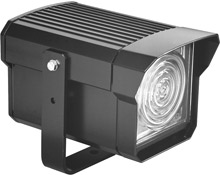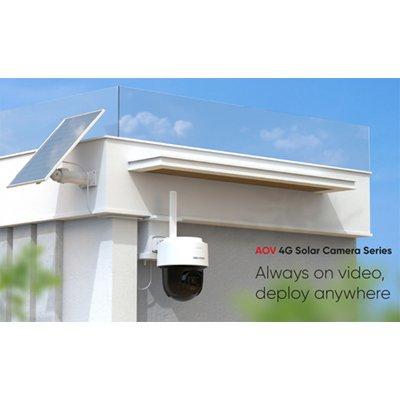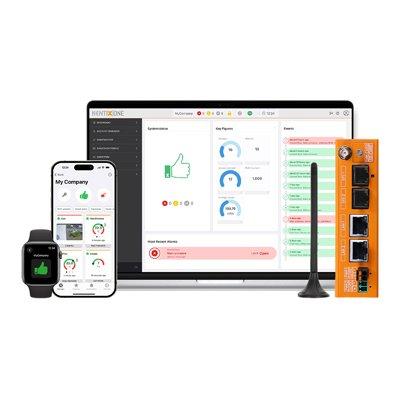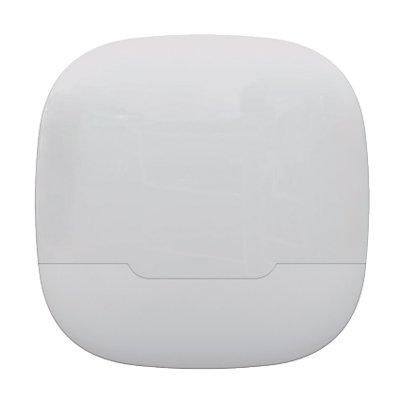 |
| Derwent - part of Bosch Group - UF500 infrared illuminators |
The installation, designed and installed by Gardner Security, comprises of various manufacturers' day/night colour-monochrome CCTV cameras and two Automatic Number Plate Recognition (ANPR) cameras covering the site's entry and exit points. All the cameras are supported by Derwent's infrared illumination to enable effective night-time surveillance. Darren Sheppard, Managing Director of Gardner Security explains:
"The client was very specific about the quality of image they required and the levels of recognition they wanted to achieve," he says. "That's why the cameras and illuminators selected for this installation are of the highest quality, to ensure high definition images in low or even no light conditions."
The need for a new security system was driven by a number of factors, most notably to combat a growing trend of metal thefts across the region. Being such a large and dispersed site, the utility also suffers from fly-tipping, incurring significant costs for the disposal of other people's rubbish.
Gardner Security won the tender due to ‘its clear and appropriate response' according to the utility's spokesman. Gardiner consulted with distributor Norbain at length before proposing a solution that comprises 44 cameras, positioned at strategic points across the site and two ANPR cameras covering the facility's front and rear automated gates.
The cameras are supported by Derwent's halogen bulb based UF500 infrared illuminators chosen, according to Darren, because they are the best on the market: "The UF500 illuminators are easy to install and flexible with a range of beam patterns and wavelengths which gives us plenty of options," he explains, "and the choice of single or twin lamp operation power supply also helps with installation."
Gardner Security won the tender due to ‘its clear and appropriate response' according to the utility's spokesman |
The night-time image quality achieved has set the benchmark, and the camera and illumination combination is now being requested by the customer for all new installations.
"From a client's point of view they are also very inexpensive to run and maintain," Darren continues. "The lamps consume very little power and if someone throws a stone at them, the glass is inexpensive to replace. With an LED unit, you'd have to replace the whole unit.
Where we've used high specification cameras, the infrared can at times prevent the cameras from switching to mono. In these situations we simply changed the filters on the illuminators from the 730nM to 830nM filters. This flexibility is essential when quality of image and system performance is the over-riding factor."
When someone enters the facility at night they trigger detectors that alert the cameras to their presence. The infrared light, which is virtually undetectable to the human eye, illuminates the scene for the cameras revealing the situation in high definition monochrome images. "Where multiple detectors are used the cameras automatically track an individual around the whole site," Darren adds. "The system sends video images of an intruder to a 24-hour monitoring centre where the activity is observed and the appropriate action can be taken."
The 24/7 surveillance capability of the system is also expected to significantly reduce the cost of manned guarding.
There is no doubt that the utility's management is pleased with the performance of the system installed, to the extent that Gardner Security is now a preferred contractor which, a spokesman says, "is a testament in itself to the quality of the project undertaken."
And as Darren concludes: "Our excellent relationships with Norbain and Derwent played a key part in ensuring we delivered this complex installation on time, on budget, and exceeded the quality standards and expectations of the client."



















